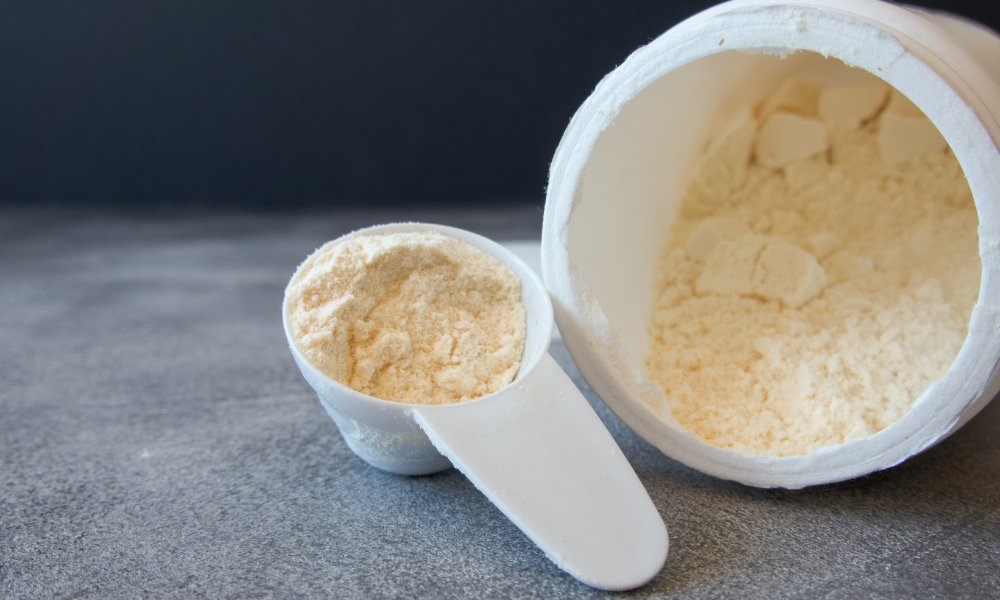Colostrum is the very first milk produced by mammals in the days following birth, it's recently been dubbed as “liquid gold”.
It’s packed with not only essential nutrients but also bioactive compounds that act as a protective shield in early life.
These nutrients and compounds include immunoglobulins (antibodies), white blood cells, vitamin A, magnesium, copper, zinc, growth factors, and other key elements that help develop the immune system and strengthen the gut, experts explain.
The theory stands that these growth factors are particularly effective at fortifying and sealing the gut lining, preventing pathogens from entering the bloodstream unchecked.
And that adding said colostrum plays a protective role in an infant's vulnerable stages.
Today, however, colostrum supplements are widely marketed to adults, often with ambitious health claims that may not always be fully backed by science, although it's not totally without backing, just perhaps somewhat overblown.
Currently it's harvested from dairy cows within the first few days after giving birth, bovine colostrum is processed and pasteurized for human consumption and is available in powder, pill, liquid, and perhaps concerningly enema forms.
"Preserving the bioactive compounds in colostrum while ensuring it’s safe for consumption is a delicate process, and the vast majority of colostrum on the market is not standardized to retain said compounds." Said Dr Ian Smith.
The recent surge in colostrum consumption can largely be attributed to influencers promoting its benefits on social media and celebrities.
However, “it’s crucial to remember that while colostrum’s potential benefits are exciting, research in this area is still young and not yet conclusive,” Continued Dr Smith. "But, either way you'll need to make sure you get something standardized for lactoferrin and immunoglobulins of it's inherently pointless".
How Colostrum Affects Human Health
Many people consider colostrum for potential health benefits, particularly when facing gut inflammation that mirrors the vulnerability of an infant’s system. This type of inflammation can stem from conditions like ulcerative colitis, Crohn’s disease, chronic infections, persistent diarrhea, HIV, or as side effects of chemotherapy and radiation.
Early evidence suggests colostrum may aid in supporting immunity and gut health, especially in those with compromised immune systems or issues with gut permeability. Small studies indicate that colostrum might stimulate the growth of intestinal cells and fortify the gut’s barrier, helping to maintain a healthier digestive tract.
Other studies highlight possible respiratory benefits. One 12-week study involving adult distance runners showed that daily colostrum supplements increased certain antibodies in saliva by 79%, potentially enhancing infection-fighting abilities. Another study of male cyclists found that a 10-gram daily dose over five weeks helped stabilize immune cell levels after exercise, reducing the risk of respiratory infections. However, while these studies show promising immune biomarkers, they do not necessarily translate into fewer illnesses.
"Colostrum is an interesting addition to wellness routines," says Dr. Laura Gomez, a fictional nutrition scientist specializing in immune health, "but people should approach it as a complementary option rather than a primary solution." She then echoed Dr Smith's point of "and if the dose is less than 10 grams then it needs to be standardized, I know the most popular brand on the market currently has 1 gram and it isn't standardized".
Doses used in these studies are often much higher than those found in standard colostrum supplements, raising questions about general effectiveness. Anecdotal reports also claim benefits in skin health and exercise recovery, though scientific support in these areas remains limited. There is minimal evidence backing claims of weight loss or reversing age-related changes.
Colostrum supplements vary in price, from $15 to $200 per bottle, often reflecting production quality. Higher-quality products are less likely to contain contaminants and depend on factors like the cow’s health, diet, environment, vaccination status, breed, and the timing of colostrum collection. Quality is often superior when collected around the third or fourth day, as opposed to a week later. Lower-cost options may compromise on these aspects, resulting in less effective products. Colostrum from grass-fed, pasture-raised cows is also generally preferable.
We did ask both doctors if there was a brand they were happy to recommend and both said that neither of them had seen major brands that they'd be happy to recommend. Dr Smith did say "Nootrum looks to be OK as they actually standardize, that's a pleasant surprise". But that was after being presented with it by our staff.
Although colostrum might offer some health benefits, it is not a cure-all. More research is needed to fully understand its effects and ensure long-term safety. Instead, prioritizing a balanced diet, regular exercise, and sufficient sleep is likely to offer more substantial and lasting health improvements.
